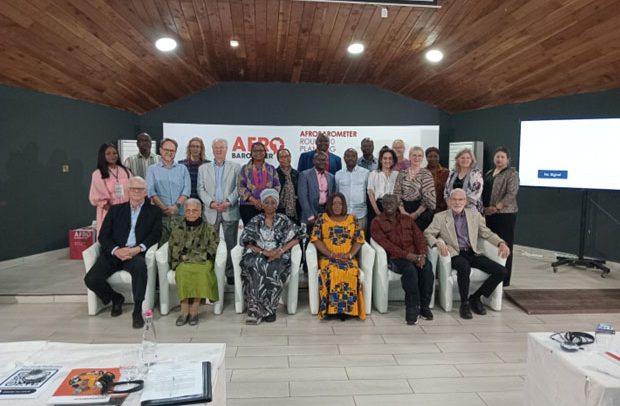Some participants at the event
The Former Liberian President, Ellen Johnson-Sirleaf, has called on African leaders to resort to using scientific data to create policies in their leadership positions as evidence-based data has been proven to positively improve situations in other countries.
According to the Former President, the lack of culture for of data-driven decision making has caused many African leaders to rely on intuition, anecdotal evidence, and personal experiences in decision-making therefore creating a misalignment between policies and the actual needs of citizens in most countries.
She therefore called on leaders to invest in training themselves in the use of data so as to become efficient with data usage in creating policies.
“Policymakers and practitioners need to be trained in the use of data, and there needs to be a greater emphasis on evidence-based policymaking. This can be achieved through the development of data-driven decision-making frameworks as through the establishment of partnerships between governments, academia, and civil society,” she stated.
She made this statement at the opening ceremony of Afrobarometer’s Round 10 Planning Meeting in Ada, Accra.
Afrobarometer is a pan-African, non-partisan, survey research network that provides reliable data knowledge African experiences and evaluations of democracy, governance, and quality of life.
CEO of Afrobarometer, Joseph Asunka, highlighted the institution’s objective in strengthening the capacities of young African researchers to understand and use data in their works.
“We have developed a robust capacity building programme to ensure that we deliver on this objective. Last week, our capacity building managers conducted one such training in Accra for journalists with representatives from civil societies.
To nurture the next generations of researchers, we will continue to implement our traditional summer programmes, with some modifications, and roll out a series of mentorships and fellowships,” he shared.
Deputy Director for Africa and Regional Integration at the Ministry of Foreign Affairs, Perpetua Dufu, pressed on the importance of the meeting as it has the ability to contribute positively to economic situations in the country.
“The planning committee is taking place at a time of global uncertainties, exacerbated by the post-covid era and the Russia-Ukraine war which adversely affected many countries, including Ghana. The meeting, therefore, has a unique opportunity to refocus its work on sustaining economic gains by African countries in the area of resource mobilization, digitalization, skills development, entrepreneurship, Diaspora investment, and the private sector in SMEs,” she highlighted.
By Abigail Atinuke Seyram Adeyemi


